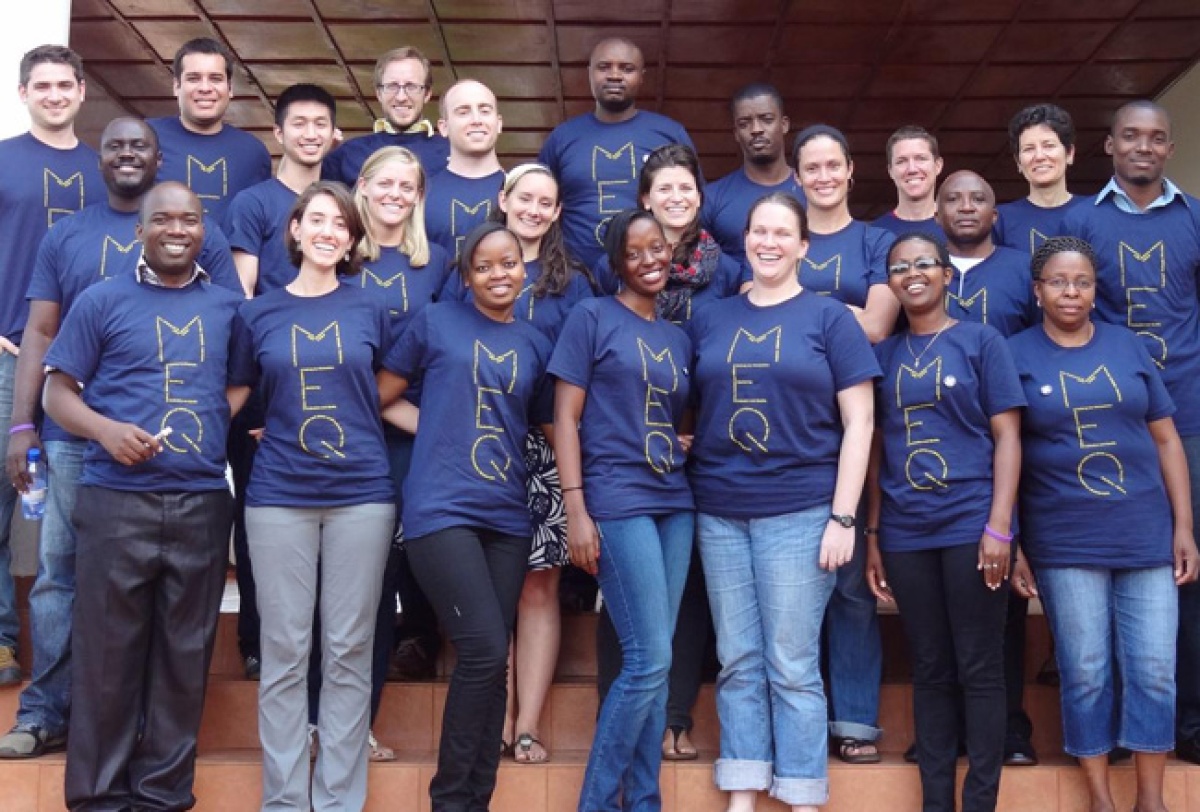Ensuring the Best Care for the Poor by Measuring Results
Data are at the heart of Partners In Health’s work. They help us identify gaps in care and guide our development of innovative tools that strengthen health systems. But given that PIH works at dozens of health facilities across 10 countries—most with limited infrastructure and few resources—ensuring that we collect the highest quality data and put them to good use can be challenging.
Posted on Apr 3, 2013

That’s why more than 20 data devotees and quality-improvement champions from six PIH sites traveled to Rwinkwavu, Rwanda, last month for the second annual Monitoring, Evaluation, and Quality (MEQ) Summit, “From Counting to Quality.”
The MEQ Summit is delightfully PIH in spirit, the type of event where you’ll hear a Haitian doctor who works in Malawi translating medical terms from English to Spanish for a Peruvian M&E coordinator. And while discussions of how best to link longitudinal data systems with medical records may seem abundantly esoteric to most people, that’s the type of information the MEQ teams use to help PIH reduce mother-to-child HIV transmission rates.
“It’s good to have a space where different teams can openly share and discuss the challenges they face and the successes they have achieved with like-minded staff from the other sites,” says Jean Paul Joseph, leader of quality improvement at Zanmi Lasante, PIH’s Haitian sister organization. “Even the small efforts that other sites are taking to improve data and patient care can teach us a lot about improving our own programs.”
Take for instance a presentation at the first MEQ Summit in 2012 by the team from PIH/Lesotho (PIH/L). They shared a simple yet effective form to track HIV patients who had stopped coming to the clinic. At this year’s summit, Sophie Motsamai, an M&E clinical manager from PIH/L, was proud to hear that colleagues at several different PIH sites had adapted the form to follow up with their own patients who had fallen out of care.
Among this year’s presentations was a discussion of how to improve the quality of data collected by community health workers (CHWs). It’s a hot issue because CHWs at all our sites play an invaluable role by visiting patients and accompanying them throughout their treatment—whether it’s a two-year multidrug-resistant tuberculosis program or ongoing accompaniment for HIV-positive patients to take their lifesaving medications.
Given their frequent, close contact with patients in the community, CHWs are in a unique position to collect patient data. Because they come from the impoverished populations we serve, however, CHWs’ educational backgrounds can vary widely. As a result, it can be challenging for them to collect accurate data in the field.
But as demonstrated by colleagues at Inshuti Mu Buzima, PIH’s sister organization in Rwanda, simple protocols and easy-to-use tools for feedback and supervision have made it easier to manage how CHWs collect data. Through the use of straightforward data dashboards—tools that automatically turn raw numbers into easy-to-interpret graphs and tables—program managers can quickly identify which CHWs are collecting high-quality, accurate information from the patients they serve, and which ones may be facing challenges.
“Global health organizations face a common challenge in understanding population health and needs at the village level in real time. Improving CHW data collection systems can give us an invaluable window into what is happening and where needs exist,” Lisa Hirschhorn, director of monitoring and evaluation at PIH, says. “This session brought together some of PIH’s most innovative thinkers and talented practitioners who’ve really moved this issue forward.”
Over the week-long summit, hands-on exercises were mixed in with roundtable discussions. Participants honed their abilities to use Gantt charts (a tool to track project implementation and outcomes) in clinical settings and explored the nuances of Geographic Information Systems for mapping the delivery of health services. Each participant returned home with fresh ideas and new tools for using data to improve outcomes for PIH’s patients.
“This year’s most inspirational moment for me was my Rwandan colleague Manzi Anatole discussing his work in mentoring nurses to improve patient care. This approach improves patient care, and the Rwandan team has the numbers to show that,” Joseph says. “All of us have worked together to create a culture of quality improvement and a team dedicated to improving care for our patients. Meetings like this help support a culture of constant improvement.”

